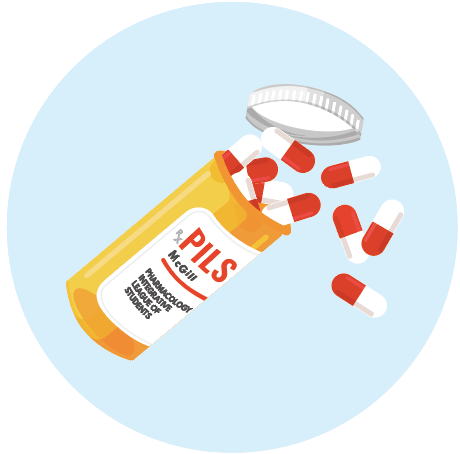| | | | | |
BIOC 311: Metabolic Biochemistry | Lots of opportunities for questions/problem solving Lots of tutorials which are attended by prof. Denis if you have questions
| Content is not very interesting (may be interesting to some, though) and not at all enjoyable to memorize, you really need to know your stuff/know the details to do well in this class Exams are long and fairly difficult Some professors are better than others
| GO TO THE PROBLEM SOLVING LECTURES! Denis and other profs often will ask similar questions on the exam or ask questions in such a way that requires you to know stuff from those sessions. Practice drawing out and understanding pathways
| |
BIOL 301: Cell and Molecular Laboratory | This course was redone in Winter 2020 and is much more useful/interesting than it was before Cool premise in that you are essentially working on one project throughout the semester so it really feels like a research experience TONS of hands on experience (pipetting, using PCR, loading gel, at the end you get to send your results to be genotyped with Genome Quebec) Most labs don’t go 7 hours Lots of free time so you can do other work or work on projects
| Even though they are shorter, labs can still feel like they go really late (especially when dark) TAs don’t help you with lab reports much/aren’t very helpful Lectures are so useless and don’t correspond with what’s going on in the lab so they aren’t even helpful when you write lab reports Rigorous/nitpicky grading
| Start your written assignments early because marking is fairly rigorous and you’ll want to make sure it’s well-thought out
| 10% Oral presentation on both proposal and project
|
| Nice mix of anecdotal and empirical studies to keep it more engaging If you do poorly on an exam Dr. Zorychta will schedule a one-on-one to go over the exam with you
| Questions test on every detail of the lecture and sometimes it will feel like you’ve never heard of something mentioned Not much text on slides so you have to really listen + interpret what she’s saying Type C questions can be tricky
| If you can, get the NTCs, they help summarize + synthesize what can sometimes seem like a disorganized lecture Make note of small random details the prof mentions – she will likely test this
| |
PHAR 301: Drugs and Disease | Cool because you learn about the disease for half the class and then you talk about the drugs to treat it, so the lectures flow well and are organized Lectures tend to have some discussions, which is engaging
| Sometimes profs try to stump you on exams Lots of drugs to memorize
| Make quizlets or flashcards for ALL the drug names!
| |
PHAR 303: Principles of Toxicology | Straightforward material, usually pretty interesting Profs (Hales and Dr. Robaire) are super sweet and understanding, genuinely care about the students and having them understand the importance of the class Pretty easy midterm, there are short answer responses so be prepared for that Interesting guest lecturers
| Each week seems like a new/random topic so class can seem disorganized Some lectures can be quite boring
| Start your presentations early, it makes it way easier to juggle your other courses in the winter
| |
